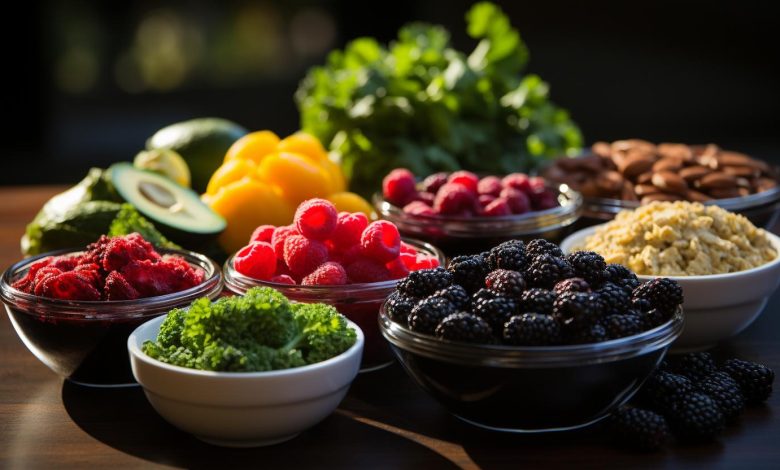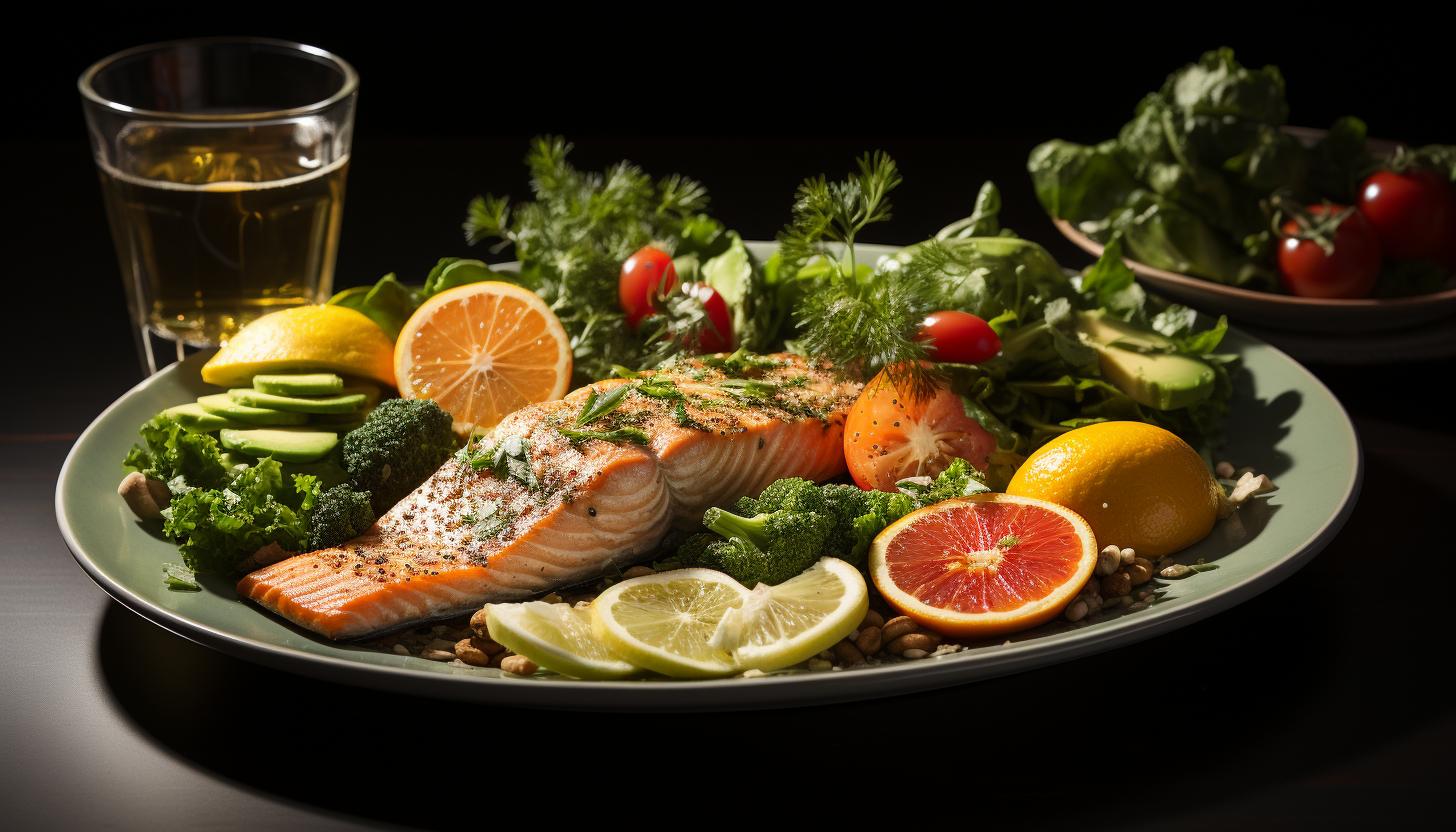Nutrition Tips for 5K Runners: Fueling Your Performance

Are you ready to take your 5K running to the next level? Fueling your body with the right nutrients is key to optimizing your performance.
In this article, we will provide you with evidence-based nutrition tips that are practical and easy to implement. From pre-run fueling strategies to hydration techniques, we’ve got you covered.
Discover the essential nutrients needed for endurance and recovery, as well as effective fueling strategies for race day success.
Get ready to power up and achieve your running goals!
The Importance of Pre-Run Fueling

Before you hit the road for your 5k run, it’s important to fuel up with a nutritious pre-run snack. Pre-run snacks are essential as they provide your body with the necessary energy sources to perform at its best during the run.
When choosing a pre-run snack, opt for something that is easily digestible and provides a good balance of carbohydrates, protein, and healthy fats. Carbohydrates are the primary source of energy for your muscles, so including them in your snack is crucial. Good options include a banana with peanut butter or whole grain toast with avocado.
Protein helps repair and build your muscles, so including some in your pre-run snack can be beneficial. Greek yogurt or a handful of almonds are great choices as they provide both protein and healthy fats.
It’s also important to consider timing when consuming your pre-run snack. Aim to eat it about 1-2 hours before your run to allow enough time for digestion. This will help prevent any discomfort or digestive issues during exercise.
Hydration Strategies for 5K Runners

During a 5K race, it’s important to stay hydrated by drinking water or sports drinks. Proper hydration techniques can help you perform at your best and avoid dehydration.
Here are four key strategies for staying hydrated during a 5K:
1. Drink before the race: Start hydrating well before the race begins. Aim to consume around 16-20 ounces of fluid two hours prior to the start time.
2. Sip throughout the race: During the run, take small sips of water or sports drinks at regular intervals. This will help maintain your hydration levels without causing discomfort.
3. Electrolyte replenishment: When you sweat, you lose important electrolytes like sodium and potassium. Look for sports drinks that contain these electrolytes to replenish what you’ve lost.
4. Post-race hydration: After crossing the finish line, continue hydrating with fluids that contain both carbohydrates and electrolytes to aid in recovery.
Proper hydration is crucial for optimal performance during a 5K race. However, it’s not just about drinking water or sports drinks; nutrient timing plays an essential role as well.
Transitioning into the subsequent section about ‘nutrient timing for optimal performance,’ let’s explore how fueling your body at specific times can enhance your running performance even further.
Nutrient Timing for Optimal Performance

To optimize your performance during a 5K race, it’s important to understand how timing your nutrient intake can enhance your running abilities. One key aspect of post-workout nutrition is replenishing your glycogen stores. After a run, your body needs carbohydrates to restore the energy you’ve exerted. Studies have shown that consuming carbohydrates within 30 minutes after exercise can lead to faster glycogen replenishment and better muscle recovery.
Carbohydrate loading is another strategy that can benefit 5K runners. This technique involves increasing carbohydrate intake in the days leading up to a race to maximize glycogen stores. By gradually increasing your carbohydrate consumption and tapering off exercise intensity, you can effectively load your muscles with fuel for optimal race-day performance.
Timing is crucial when it comes to nutrient intake for runners. Consuming a balanced meal or snack containing both carbohydrates and protein within two hours before a run can provide sustained energy throughout the race. Similarly, eating a combination of carbohydrates and protein shortly after finishing the race aids in muscle repair and recovery.
Essential Nutrients for Endurance and Recovery

You can enhance your endurance and aid in muscle recovery by ensuring you consume essential nutrients for optimal performance. Here are four key nutrients to include in your post-race nutrition plan:
1. Protein: Consuming protein after a race helps repair muscle damage and promotes muscle growth. Aim for 20-30 grams of protein within 30 minutes of finishing your run.
2. Carbohydrates: Replenishing glycogen stores is crucial for recovery. Opt for complex carbohydrates like whole grains, fruits, and vegetables to provide sustained energy and support glycogen replenishment.
3. Antioxidants: Intense exercise increases oxidative stress in the body, leading to tissue damage. Including antioxidants like vitamins C and E, as well as foods rich in phytonutrients (berries, leafy greens) can help combat this stress and promote recovery.
4. Omega-3 fatty acids: These healthy fats have anti-inflammatory properties that can reduce post-race soreness and inflammation. Incorporate sources like fatty fish (salmon, mackerel), chia seeds, or walnuts into your diet.
While meeting these nutritional needs through whole foods is ideal, some athletes may benefit from incorporating recovery supplements such as whey protein powder or branched-chain amino acids (BCAAs). However, it’s important to consult with a healthcare professional before adding any supplements to your routine.
Remember that proper post-race nutrition is just one piece of the puzzle when it comes to optimizing performance and recovery. Adequate rest and hydration also play crucial roles in helping you bounce back stronger for future races!
Fueling Strategies for Race Day Success

One key aspect of race day success is ensuring that you consume the right fuel for optimal performance and endurance. Proper nutrition before, during, and after your race can make a significant difference in your overall performance and recovery. One strategy that many runners use to maximize their energy stores is carbohydrate loading. This involves increasing your intake of carbohydrates in the days leading up to the race to ensure your glycogen stores are fully stocked.
To help you understand how to fuel properly on race day, here’s a simple table outlining some key guidelines:
| Before Race | During Race | After Race |
|---|---|---|
| Consume a balanced meal containing carbohydrates, protein, and healthy fats | Stay hydrated by sipping water or sports drinks throughout the race | Refuel within 30 minutes with a combination of carbs and protein |
| Aim for low-fiber foods to prevent gastrointestinal issues | Consider using energy gels or chews for quick glucose replenishment | Continue hydrating and eat a well-balanced meal within two hours |
Remember that everyone’s nutritional needs may vary slightly, so it’s important to experiment with different strategies during training runs to find what works best for you. By fueling properly on race day, you’ll have the energy needed to perform at your best and promote efficient post-race recovery.
Conclusion
In conclusion, you now have the knowledge to fuel your 5K performance like a pro. By prioritizing pre-run fueling, staying hydrated, and timing your nutrients appropriately, you can optimize your performance on race day.
Remember, nutrition is the key to unlocking your full potential as a runner. So don’t just run on empty; fuel up with the right foods and fluids to power through those 5Ks like a well-oiled machine.
As they say, ‘You are what you eat,’ so make sure what you eat fuels your success on the track!






